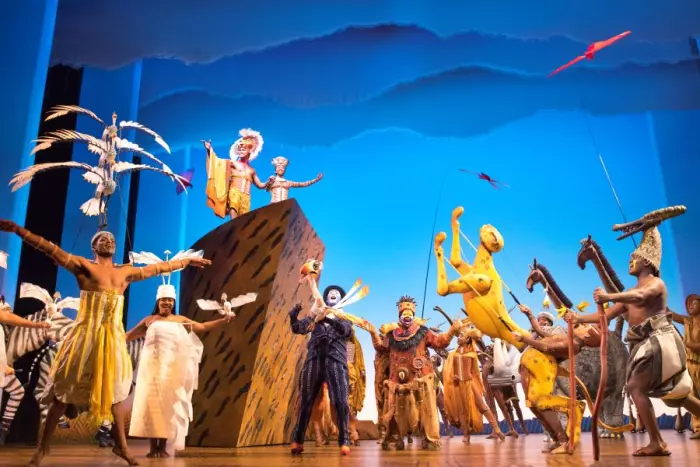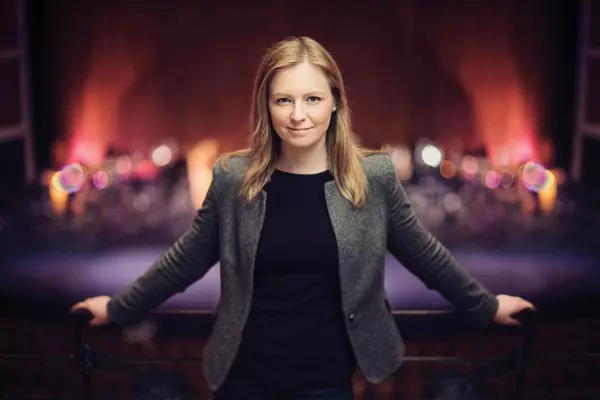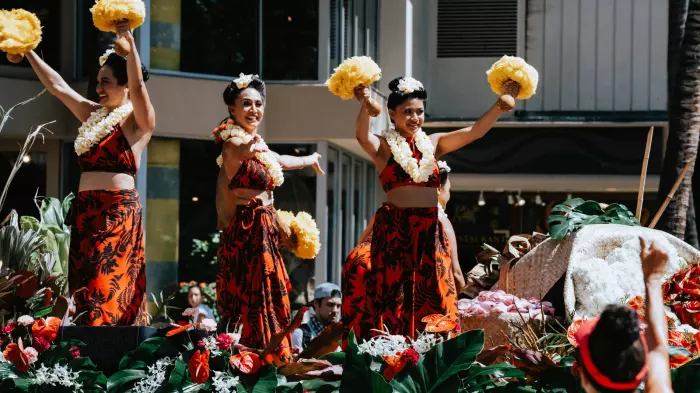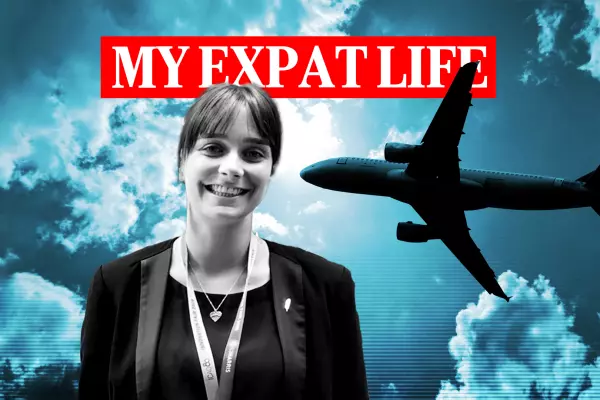The Lion King, the musical theatre extravaganza that enchanted thousands of New Zealanders during its four-week season in Auckland this year, was the fastest-selling, biggest-grossing such show ever to come to Aotearoa. And if it weren’t for covid-19, local audiences might never have seen it.
Spark Arena’s parent company, Live Nation, had been trying for two to three years to lure the show to Tāmaki Makaurau, according to arena general manager Brendan Hines. When the rest of the world shut down because of the pandemic, New Zealand suddenly became an attractive market.
As a result, everything came together exceptionally fast. International shows are usually announced many months or even more than a year in advance of opening. The Lion King had six weeks.
The show represented a new direction for Spark Arena. Not only was it hosting an international musical theatre event, it was in charge of promotional duties, too. The company engaged entertainment PR agency 818, which announced the show on March 16 and launched a concerted media blitz that lasted until the end of June, when The Lion King opened.
“Traditionally, we operate as a place for hire,” says Hines. “Taking on those [wider] responsibilities meant there was a lot more to do and a lot more risk.”
It was a necessary pivot for Spark Arena, which generates much of its income by hosting international touring artists. Even a mothballed arena carries significant fixed costs.
“Venues of all sizes have big overheads; they rely on the churn of business,” says Hines. “When that business isn’t there, power bills still need to be paid, rent needs to be paid, staff need to be paid. We’ve had to get creative about what we can do in a building and come up with a new way of doing business.”
It was a change worth making; in its short June 24 to July 18 season, The Lion King sold 136,000 tickets, ranging from $60 to $245 each.
“This is the most successful thing we’ve ever done,” says Hines. “We’re known as a concert venue but we’ve had to diversify and this was our first foray into a major theatrical event. The public reaction was overwhelmingly positive.”
A roaring trade
The Lion King was also positive for plenty of people who needed employment at a time of uncertainty. Hines says that Live Nation hired 470 locals to work in and around the show.
“Riggers, loaders, labour, catering, merchandise, cleaners … the list goes on and on of people working on that show, from rehearsals to the end of the season, so that was probably two months of work for those core people.”
There were numerous additional people on the periphery as well, all benefiting from The Lion King’s season in Auckland. Some of those were predictable. Anecdotal evidence suggests that restaurants and downtown retailers, particularly in the recently opened Commercial Bay precinct, did a roaring trade thanks to the show’s proximity. Moreover, of the 136,000 tickets sold, more than 47,000 went to people who travelled from outside Tāmaki Makaurau, which in turn had a flow-on effect for accommodation providers in the city.
According to economic modelling provided to BusinessDesk by Fresh Info, those visitors accounted for 86,270 visitor nights in the region. In all, The Lion King generated a tick over $19 million in tourism expenditure, and more than $11m in GDP.
“A big show like this has incredible benefits for all of us,” says Hines, “and in sectors that are at the pointy end of the impacts of covid: retail, hospitality, and so on. They’re all doing it quite hard, so I think this was a massive shot in the arm.”
Some beneficiaries of The Lion King’s presence were less predictable. Production house The Hood & Co was contracted to create a short film clip introducing Auckland as a venue for the show. The shoot took place 220 metres up the Sky Tower, and involved a helicopter and pilot, riggers and a whole pride of safety inspectors. Then there was post-production, relationship management, and all the other things necessary for a film production. All up, the 1min 30s video employed the team on and off for about a month.
“It probably gave 15-odd people a good amount of work and paid the bills,” says Hood creative director James Rua (Ngāti Whātua, Ngāi Tahu). “The spend was very helpful in this covid environment.”
Rua learnt a few new skills, too. “Any time you take a door off a helicopter and fly around 64 storeys high is a novelty; you don’t do it every day. In that sense it has given us experience working with a big client like Disney and doing something on this scale.”
Local creatives left unhappy
While The Lion King was good for many Auckland workers, it didn’t do a lot for local on-stage talent. It’s often the case that international shows are brought in as complete packages that provide everything from sets and costumes to singers and dancers. The Lion King hired five young Kiwis for small parts, and the lead character, Simba, happened to be played by New Zealander Nick Afoa, but he wasn’t trained specially for the Auckland season. The lack of local talent caused murmurs within the entertainment industry here.
“I wasn't impressed with them coming here at a time when our industry was having so many cancellations because of covid,” said one sector insider, who asked not to be named. “We have so many talented performers in this country, why import?”
“A show of this scale, you can’t create locally,” counters Richard Clarke, head of business and major events for Auckland Unlimited, the council-controlled organisation that is the city’s economic and cultural agency and provided funding for The Lion King.
“You can’t train a cast to do this in six weeks; you can’t create the level of sets. This show, in particular, would be almost impossible to deliver locally – the set and the costuming and everything are so specific.”
Auckland Unlimited invested $175,000, with a further $125,000 as a contingency. Clarke says that as part of the funding agreement, 40 Unitec performing-arts students were invited to attend a workshop with members of the cast and crew.
Emma Bishop of industry body Musical Theatre New Zealand, which is campaigning for greater support of local musical theatre makers during covid, says that witnessing major international shows can “be the catalyst that opens [young performers’] eyes to a future career in theatre”, but adds that there was ill-feeling around The Lion King coming at a time when so many local theatre folk were out of work.
Such huge productions have unforeseen complications for smaller theatre-makers, too. According to director Ben Crowder, founder of Nightsong theatre group and a self-confessed fan of The Lion King, the big shows bite a large chunk out of the pool of available theatre technicians, and when you can get them, these days they’re a lot more expensive.
“It’s a complex situation. The technicians benefit and it’s good that people have these skills, but equally we have to compete for them. I don’t begrudge paying [technical staff] – and I don’t think they’re paid that well – but technicians’ wages have gone up enormously.”
A lion’s share of MIQ
Another concern was that The Lion King chewed up 126 spots in managed isolation at a time when New Zealanders were struggling to get home. The cast and crew received border exemptions in the critical-worker category, which drew opprobrium from the likes of Act Party leader David Seymour, who would have preferred those MIQ slots go to workers in industries such as horticulture, where there are labour shortages.
“The process we went through absolutely followed the process the government set out; we didn’t part from that all,” says Spark Arena’s Hines. “The Lion King was approved entirely on its own merits, and largely that was a business case. I’m really pleased to see, retrospectively, that’s how it played out. A lot of the figures we put in the business case – the economic analysis – the [final] numbers have outstripped those projections.”
Ratepayer funding
Given those expectations of success, why did Live Nation apply for and receive local government funding to bring The Lion King to Tāmaki Makaurau?
“A lot of shows wouldn’t happen without our investment,” Clarke says. “[The Lion King] needed some security around funding to generate the confidence to bring it here.”
The Lion King was a sure-fire hit, though, wasn’t it? Not necessarily. Shows that are massive overseas don’t always register with Kiwis, and very little is a dead cert in the theatre world.
It’s this sort of risk that Live Nation sought to mitigate against when it approached Auckland Unlimited for support. In the end, as well as doing great business at the Spark Arena box office, The Lion King far exceeded the council-controlled organisation’s metrics of success, judging by the Fresh Info data outlined above.
Circle of life: The social economy
The Lion King had further targets specific to the unsettling times in which we live.
“Currently, we look at the social impacts these events have in terms of getting people back to a feeling of normality and connecting communities,” Clarke says. “We saw the huge moments coming out of the [March 2020] lockdown, like 40,000 people at Eden Park for a footy game. That had something to do with rugby, but a lot of it was about the event and people celebrating where the country was at.”
It’s not Spark Arena’s job to provide succour to Kiwis during desperate times, but Hines is proud that his organisation did so.
“Maybe people call [musical theatre] frivolous at the moment, but for two and a half hours, people could escape covid and everything else going on in the world. I think that’s why what we do is important; it takes people away and there’s a sense of joy and wellbeing that comes with that. That’s as important as the commercial [side] and keeping people in jobs, and I can’t think of any time that’s been more relevant.”











